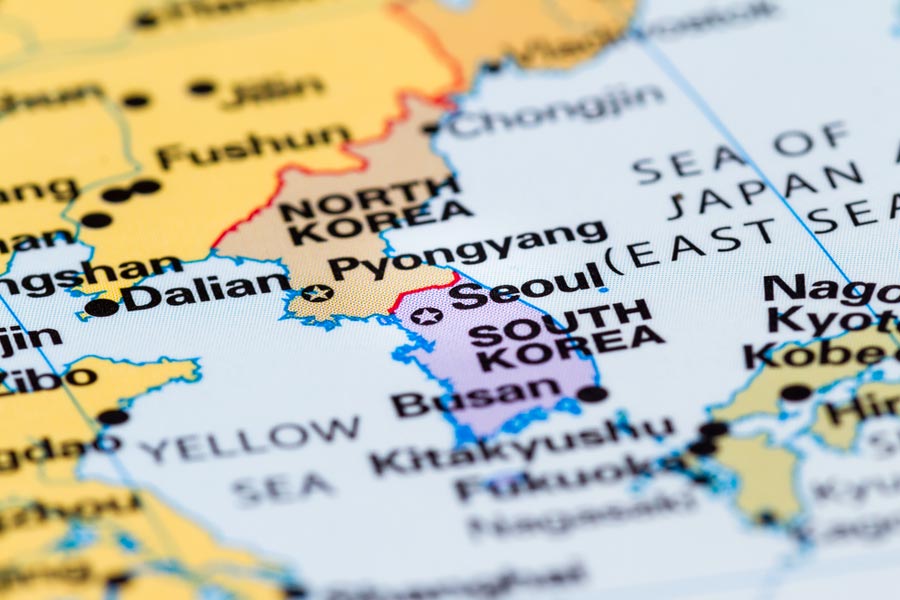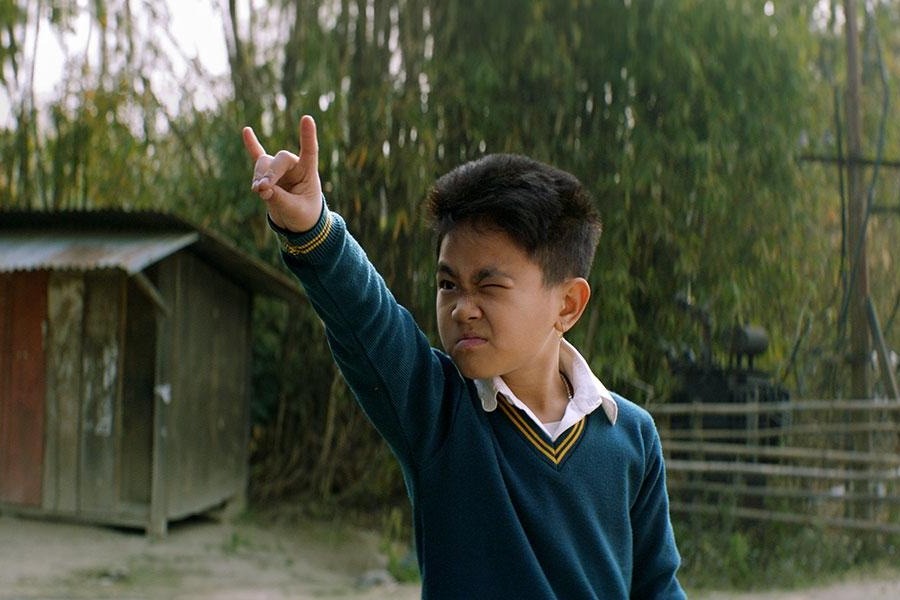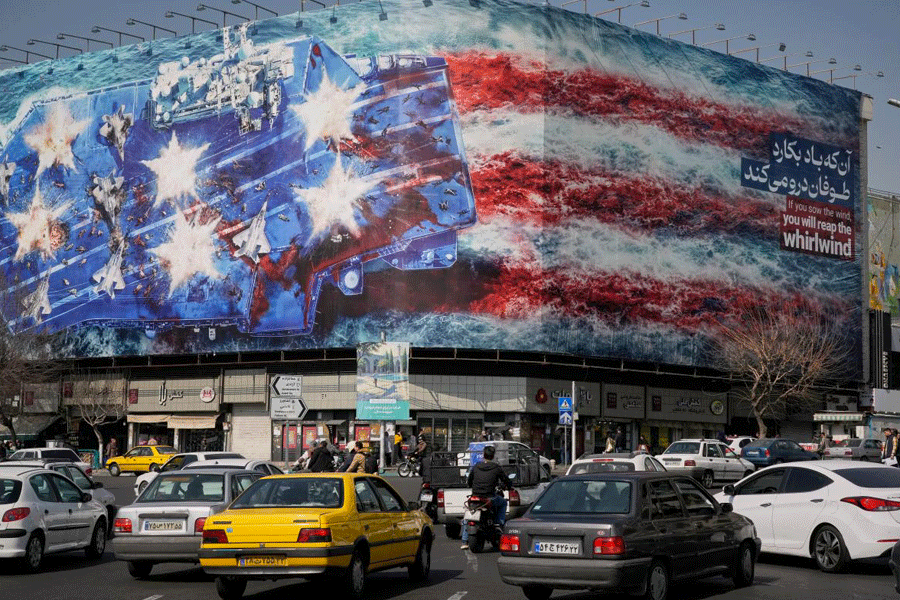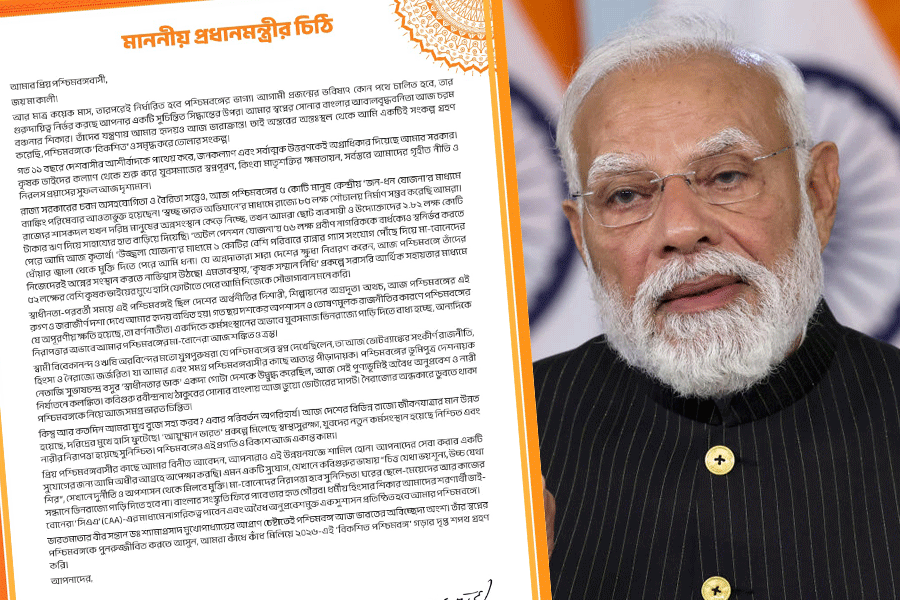Don't believe the name: The Demilitarised Zone between the two rival Koreas might be the most heavily armed place on earth. Two million mines, barbed wire fences, tank traps and tens of thousands of troops from both countries patrol a divided swath of land 248 kilometers (154 miles) long and 4 kilometers (2.5 miles) wide.
So how, on the eve of Russian President Vladimir Putin's summit on Wednesday with North Korean leader Kim Jong Un, did as many as 30 North Korean soldiers wander over the line separating North from South, causing South Korea to fire warning shots before the North Koreans withdrew?
The short answer appears to be shrubbery: Because of an overgrowth of foliage, the North Koreans may not have seen the signs marking the thin military demarcation line that divides the DMZ into northern and southern sides.
But, more deeply, it can also be understood in light of the long, often violent history of the unique border set up after the 1950-53 Korean War. It ended with an armistice, instead of a peace treaty, leaving the Korean Peninsula divided, and technically still in a state of war.
Here's a look at the events surrounding the incursion:
What happened?
On Tuesday, South Korean troops broadcast warnings and fired warning shots to turn back North Korean soldiers — somewhere between 20 to 30 — who briefly crossed the demarcation line in the DMZ.
The North Koreans, who had been doing construction work in the area, immediately retreated, and the South's military didn't spot any suspicious activity after that, the Joint Chiefs of Staff in Seoul said.
It was the second such incident in two weeks.
Neither incursion was an invasion, or even a maneuver meant to test the South's defences, Seoul says, but more likely an accident.
When North Korean soldiers briefly crossed a different part of the line on June 11, the same scenario played out: Warning shots from the South; a North Korean withdrawal.
What does the demarcation line look like?
The demarcation line, in many parts of the DMZ, is simply a sign mounted on a stick or a slice of concrete.
People have stepped across it before, under very special circumstances, and usually at the border village of Panmunjom. Former US President Donald Trump walked across with Kim Jong Un. Last year an American soldier facing possible military discipline dashed over the line to the North.
Outside of Panmunjom, much of the DMZ is wilderness, but it is heavily monitored on both sides. And while the demarcation line may be easily crossed, it is very difficult to do so without being spotted immediately.
The southern side of the land border is protected not only by thousands of soldiers, guns and mines, but also by a dense network of cameras, motion sensors and other high-tech surveillance equipment. Breaches are very rare and are usually detected quickly. Defections from the North are also unusual along the North-South land border, though they have happened with frequency along the porous China-North Korea border and occasionally in the Yellow Sea.
The North's accidental intrusions this month may have been caused by a sudden jump in North Korean troops fortifying their side of the border.
Because overgrown trees and plants may have been obscuring the signs marking the demarcation line, Seoul says, the North Korean troops may have stepped over the line without knowing it.
Why are so many North Koreans working in the DMZ?
Relations between the rival Koreas are worse now than in many years.
Recent weeks have seen a tit-for-tat standoff that has resulted in Cold War-style psychological warfare. Both sides have said they are no longer bound by their landmark military agreement in 2018 to reduce tensions.
The North Koreans along the border, Seoul says, have been installing what appear to be anti-tank barriers, reinforcing roads and planting land mines, even as mine explosions have killed or wounded an unspecified number of North Korean soldiers.
The construction started around April and may be an attempt to curb North Koreans trying to defect to the South, according to Seoul's military.
Could it happen again?
Possibly, especially if the North Korean construction continues along the demarcation line.
But both sides appear intent on containing their animosities to the psychological warfare they're engaging in.
Still, there are worries that the hostilities are pushing them closer to a direct military clash. The Koreas have had no meaningful talks for years and could find it difficult to set up dialogue as tensions rise over the North's development of nuclear-capable weapons.
Some analysts say the Koreas' poorly marked western sea boundary — site of skirmishes and attacks in past years — is more likely to be a crisis point than the land border.
Kim, during a fiery speech in January, reiterated that his country does not recognise the Northern Limit Line in the Yellow Sea, which was drawn up by the US-led UN Command at the end of the war. North Korea insists on a boundary that encroaches deeply into South Korea-controlled waters.
While the huge military presence on both sides of the DMZ means that years sometimes pass without incident, violence can quickly erupt. Two American Army officers were axed to death in 1976 by North Korean soldiers, for instance.










